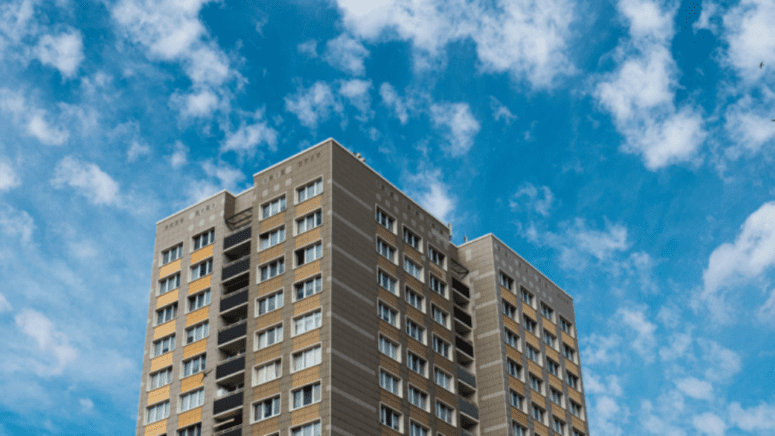Avoid HOA Horrors: 25 Questions to Ask When Buying a Condo
- Published on
- 11 min read
-
 Garrett Callahan, Contributing AuthorClose
Garrett Callahan, Contributing AuthorClose Garrett Callahan Contributing Author
Garrett Callahan Contributing AuthorGarrett Callahan is a freelance writer who writes on the ins-and-outs of buying the perfect home. For over six years, he has written extensively on travel, history, and culture, and he spent the past two years researching the home-buying process as a first-time homeowner. Based in Massachusetts, he is an admirer of historic homes and loves an old house with a good story.
-
 Jedda Fernandez, Associate EditorClose
Jedda Fernandez, Associate EditorClose Jedda Fernandez Associate Editor
Jedda Fernandez Associate EditorJedda Fernandez is an associate editor for HomeLight's Resource Centers with more than five years of editorial experience in the real estate industry.
You’ve done your research, crunched your numbers, and laid out what you’re looking for in a home. It’s all led you straight to condo living, and you can’t wait for the maintenance-free lifestyle and simple conveniences that come along with it. The only problem: You’ve heard one too many horror stories about controlling homeowner associations and excessive monthly fees.
Condominiums can be low maintenance, offer luxury amenities, and provide the easy living you might want. For many first-time buyers, a condo may be the manageable first home you need or, for retirees, the best option for downsizing. But they also come with different considerations you might not be aware of, especially if you’re used to single-family homes. Most HOAs have strict monthly fees and rules for your unit that, for some buyers, might cause more headaches than happy nights.
So, how do you know you’re finding the right condo for you? With the help of a veteran real estate agent, we’ve compiled a list of 25 questions to ask when buying a condo. With these answers in hand, you should be able to find the perfect condo that matches your needs and provides more conveniences than hassles.
1. Does your condo qualify for the type of financing you need?
It’s imperative to find out right off the bat if your condo qualifies for the type of financing you need, according to Colorado real estate agent Robert Hryniewich. Some buildings might not be approved by the U.S. Department of Housing and Development (HUD) and might not work with FHA, VA, or even USDA loans. Hryniewich, a HomeLight Elite Agent who has sold 87 more condos than the average agent in his area, estimates around 50% of condo properties aren’t HUD-approved and won’t qualify for an FHA loan. HUD wants to make sure an HOA has sufficient funds, is well-managed, and has an acceptable renter-to-owner ratio.
Check with the HUD website to see if your condo meets their requirements or ask the condo’s HOA board. Ensuring your condo meets your financing requirements early on will save you plenty of time and stress.
If your condo doesn’t qualify under HUD’s guidelines, you still may be able to find financing under a conventional program, but you’ll want to talk to your lender early to ensure it will qualify under their guidelines as well. Asking these questions in advance can help you find the lender and loan that will work for you.
2. What are the HOA fees?
It’s also best to know early on what extra money you’ll have to budget for on top of your mortgage. Most HOAs require a monthly fee, ranging from a couple of hundred dollars to over $1,000, in order to cover communal expenses. The average monthly cost for an HOA fee is between $150 and $300, but the exact amount will depend on your location and what the HOA provides.
3. What do the HOA fees cover?
Of course, this will vary between every association, but generally, HOA fees will cover:
- Utilities in the common areas
- Building maintenance
- Repairs in common areas
- Landscaping
- Building security
- Trash
- Amenities on the property
In some cases, they might also cover water, utilities in your unit, and cable/internet costs. Confirm with your HOA precisely what your dues provide.
4. What are the association rules?
No one wants to settle into your new condo unit only to find out you can’t hang all of your cherished Christmas decorations up. So, before you complete your purchase, ask for a copy of the Declaration of Covenants, Conditions, and Restrictions (CC&R), bylaws, and rules and regulations set forth by the condo association. These all might sound like the same document, but they’re different, and they each outline specific rules for the building. They also contain the legally binding regulations every homeowner needs to follow.
These rules might include what you’re allowed to have on your balcony or patio, pet restrictions, how much noise you can make, or even what holiday decorations you can put up.
5. How are the HOA and building managed?
If you’re in a larger building, the HOA association might oversee a professional management company. If you’re in a smaller building, all the individual unit owners might make up the entirety of the HOA board and have an equal say in the daily operations of the condo association. Either way, it’s good to know precisely how your HOA is managed and how the day-to-day operations work.
6. Do I need to attend condo meetings?
Almost every condo association will have regular meetings for owners to attend. You might feel it’s important to participate in every one of them to ensure you know what’s going on. Or you might think it’s best just to let the board do their thing. Either way, find out the requirements (if any) for condo meetings, so you know how much involvement you’re expected to have.
7. Can I see the condo board’s meeting minutes?
A condo association’s meeting minutes can tell you a lot about the HOA and the organization of the building. The minutes will usually include information on the association’s budget, upcoming projects, and if the owners have any complaints with the property or association.
8. Can I see the association’s latest financial report and annual budget?
Hryniewich believes the biggest misconception around condos is that HOAs are just there to take your hard-earned money. But he emphasizes that’s not the case, and the proof is in the financial reports. Take a look at whatever financial documents are available, including the annual budget, to see how much it costs to manage the property and how your HOA fees will be used. These financial reports will also show you how well-managed the property is and if you can expect any financial issues in the future.
9. How much money is in the reserve fund?
Any well-run association will have a reserve fund as a part of its annual budget set aside for unexpected expenses. Ask how much they currently have in the fund to assess the association’s financial health and ensure there’s enough for any unforeseen projects. Many HOAs might invest in a “reserve study” to figure out what repairs are possible in the future and how much money your association should have set aside for them.
Plus, many lenders will require at least 10% of the association’s budget to be in a reserve fund to receive a mortgage loan.
10. Are there any special assessments due?
If a reserve fund isn’t enough to cover a significant expenditure, a special assessment might be required from the association. This is an additional fee collected from every unit owner to raise funds for the large repair. So, let’s say a large leak develops in the building’s roof, and the reserve fund can’t cover the entire repair cost. The HOA might ask for a special assessment to collect the necessary funds to repair or replace the roof.
Ask the HOA if they’re aware of any possible special assessments now or in the future.
11. What is the ratio of owners to renters?
Hryniewich believes this is one of the most important questions to ask. A building with fewer owner-occupied units may be a riskier investment since it might make it undesirable to you and future owners. Your unit might be harder to sell down the line, and the value of your property might not rise as fast if there’s a high number of renters in the building, Hryniewich says. He adds that an HOA might set a cap for what percentage of the building can be renter-occupied.
Furthermore, if you’re hoping for an FHA loan, you might have a more challenging time securing financing. An FHA loan requires at least 50% of all units within a property to be owner-occupied.
12. Is there any pending litigation?
An association may be involved in a lawsuit for many reasons, including HOA disagreements, discrimination, construction issues, or even unpaid dues. But no matter the reason, pending litigation will likely mean more headaches for you. It may increase your monthly fee down the line, cause selling issues, and lenders may steer clear of providing financing if litigation is pending on an association.
13. Has the building invested in any green energy initiatives?
Not only will a green building help improve your air quality, but it should also lower energy costs, water costs, and maintenance costs throughout the building.
14. What are my repair and maintenance responsibilities?
Usually, you will be required to cover the maintenance and repair within your own unit, and the HOA will cover all of the common areas. However, it’s wise to double-check to make sure you aren’t responsible for more or less maintenance than you want.
15. Do I need insurance?
Every HOA will have an insurance policy for the building, known as a master policy, covering damages to the structure and any communal areas. Part of your monthly dues should go toward paying that. But, in most cases, you’ll also be responsible for a condo insurance policy that covers your specific unit from the walls in.
Hryniewich, our Colorado Elite Agent, believes it might also be helpful to get “loss assessment coverage” with your condo policy that may help cover your out-of-pocket expenses in the case of a special assessment.
16. What are the boundaries of my unit?
This might seem pretty straightforward, but confirm what the exact boundaries of your unit are. Are you responsible for any exterior locations or even any repairs inside the walls?
17. Is there parking for condo owners?
You don’t want to show up on moving day only to realize you have nowhere to park your truck. Check if it’s deeded parking (meaning you own the spot as a part of your unit), assigned parking, if there are any added costs for parking, and how many dedicated spots you have available.
18. Is there parking for guests?
It’s never too early to start thinking about your housewarming party. Figure out the best place for your guests to park.
19. Can I run a business out of my condo unit?
Make sure your condo association doesn’t have any rules that might affect your ability to work from home, including if you’re able to run a business or company out of your unit. Many HOAs believe a business, especially one with several employees, might be noisy and disrupt others in the building.
20. Can I rent out my unit?
Whether you plan to rent out your unit or it may be a possibility down the line, confirm what the rules are regarding rentals. Your condo docs and bylaws should lay out the regulations on renting and if it’s allowed on the property. Sometimes it may be permitted, but you need approval from your association.
21. Are short-term rentals allowed?
If you’re interested in using your unit as an Airbnb or VRBO, see if your association has any rules on short-term rentals. Sometimes HOAs state that a rental must last for at least 30 days; other times, there might not be any restrictions at all. Keep in mind what your local city and state laws say about short-term rentals as well.
22. Are there any pet restrictions?
Many condo associations have requirements on the type of pet you’re able to have as well as the size and specific breeds.
23. How noisy is the building?
This might be something you’re able to figure out from the meeting minutes if there are any specific noise complaints or disagreements. But it’s smart to ask the condo association or even your potential neighbors what the noise level usually is.
24. What exactly do I own?
In a condo, you will often own your specific unit and a certain percentage of the common areas. Your copy of the CC&R should precisely outline what is a part of your unit and part of the common areas. In addition to your other condo docs, it should show your “interest,” or ownership, in the property.
25. What is the potential resale value?
This, of course, isn’t set in stone and can change based on many different factors. However, it’s fair to get a potential resale value so you know how your equity might grow while you’re in the unit.
Consider everything from the unit itself, the condo fees, the ratio of buyers to renters, and the number of unsold units. The HomeLight home value estimator will be an excellent tool to aid in your estimate as well.
Whether you’re a first-time buyer looking for your first property or an empty nester looking to downsize, getting the right information when exploring a condo is crucial. These questions should provide just what you need and ensure you’re finding the perfect condo that fits all your demands.
Header Image Source: (Marcus Lenk / Unsplash)
- "What is loss assessment coverage?", Allstate (July 2024)
- "What Is Condo Insurance, and What Does It Cover?", NerdWallet (January 2025)
- "HOA Fees: What Are They and What Is Covered", Motley Fool Money (September 2024)
- "What Are Covenants, Conditions & Restrictions (CC&Rs) in HOAs?", NOLO (October 2024)




